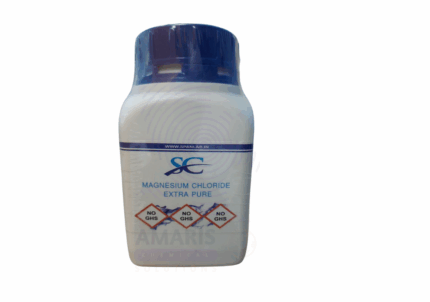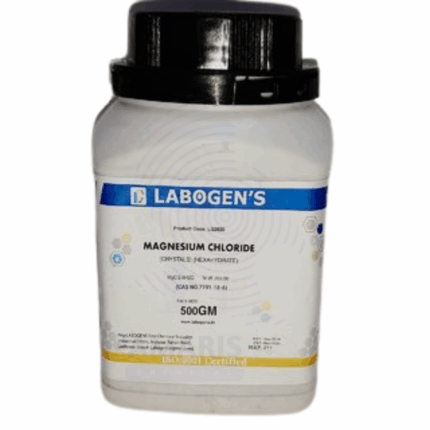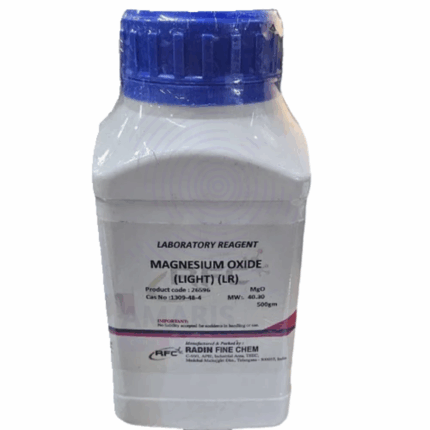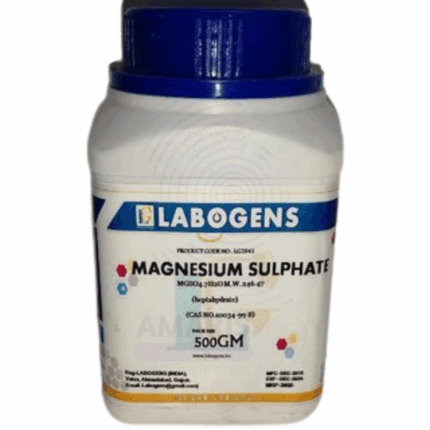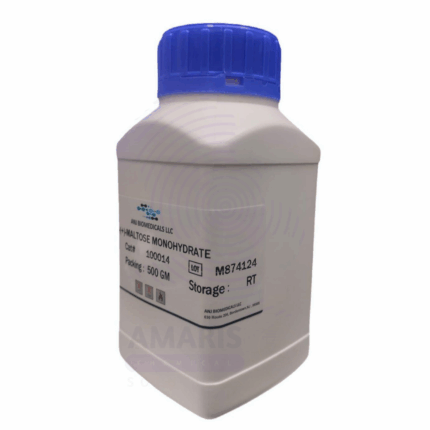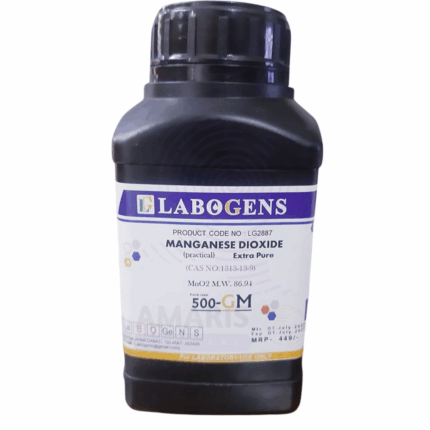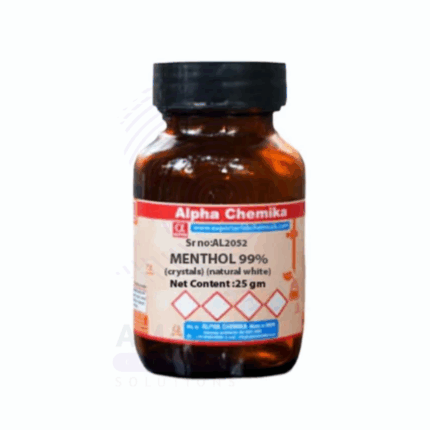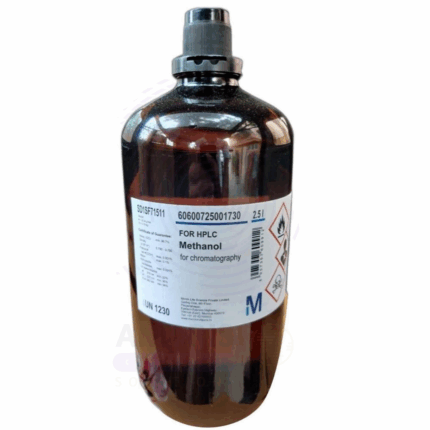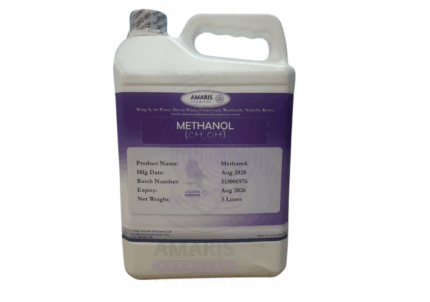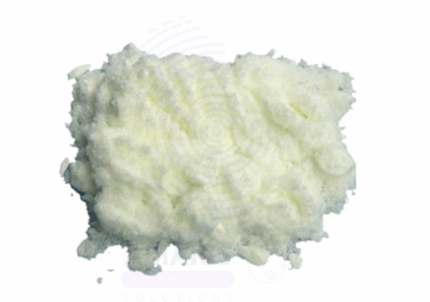
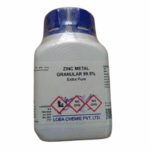
Zinc Foil Extra Pure
$ 19.20 Original price was: $ 19.20.$ 19.07Current price is: $ 19.07.
Zinc Foil Extra Pure is a high-purity, thin, malleable metallic zinc sheet exhibiting excellent chemical purity and uniform thickness. Its consistent quality makes it ideal for laboratory applications including electrochemical studies, reduction reactions, and corrosion research. The foil form provides a convenient and controlled source of metallic zinc with minimal contamination risk. It is widely used in research involving zinc reactivity, battery electrodes, and materials science. Safe handling and storage are crucial due to the foil’s reactive nature with acids and potential for sharp edges. This product meets stringent purity criteria suited for analytical and high-purity industrial applications.
Zinc Foil Extra Pure
PRIMARY USES
- Analytical Reagent & Laboratory Applications:
- Used as a pure zinc source in electrochemical cells and galvanic experiments
- Employed in reduction reactions and organic synthesis as a metallic zinc reagent
- Utilized in corrosion and surface chemistry studies
- Acts as a standard material in material science and metallurgical research
- Used in hydrogen generation reactions by reacting with acids in laboratory demonstrations
- Industrial & Technical Applications:
- Raw material for electroplating and coating processes requiring uniform zinc layers
- Used in battery manufacturing and electrode preparation
- Serves as a barrier material in chemical packaging research
- Pharmaceutical & Cosmetic Industry:
- Source for preparation of zinc-containing compounds and ointments under controlled conditions
SECONDARY USES
- Environmental & Agricultural Applications:
- Used in controlled experiments on zinc bioavailability and soil amendments
- Applied in corrosion control studies in environmental research
| PACK SIZE |
500 grams Plastic Tin |
|---|
1. Basic Identification Attributes
Chemical Name: Zinc Foil
CAS Number: 7440-66-6
HS Code: 7901.20.00
Molecular Formula: Zn
Synonyms:
- Pure zinc sheet
- Metallic zinc foil
- Laboratory zinc strip
2. Physical & Chemical Properties
Physical State: Thin metallic foil, malleable
Color & Odor: Bluish-silver metallic luster, odorless
Melting Point: 419.5 °C
Boiling Point: 907 °C
Density/Specific Gravity: 7.14 g/cm³
Solubility:
- Insoluble in water
- Reacts with acids producing zinc salts and hydrogen gas
pH Level: Neutral as solid; aqueous interaction slightly alkaline due to hydrolysis
Vapor Pressure & Volatility: Negligible
Flash Point: Not flammable
Autoignition Temperature: Not applicable
Viscosity: Not applicable
3. Safety & Hazard Attributes
Hazard Class (GHS Classification):
- May cause skin and eye irritation through mechanical contact
- Reacts with acids releasing flammable hydrogen gas
NFPA Ratings: - Health: 1
- Flammability: 0
- Reactivity: 0
Exposure Limits: - OSHA PEL: Not specifically set for zinc metal, but dust/fume limits apply if foil is abraded
- ACGIH TLV: Refer to zinc dust/fume limits for particulate exposure
Reactivity: - Stable under normal conditions
- Reacts with acids vigorously
4. Storage & Handling Attributes
Storage Conditions:
- Store in dry, cool, well-ventilated area
- Keep away from acids, moisture, and oxidizing agents
Incompatible Materials: - Strong acids
- Strong oxidizers
- Moisture (may cause corrosion)
Container Type: - Non-reactive containers (plastic or coated metal)
Shelf Life & Expiration Date: - Stable indefinitely if properly stored
Special Handling Requirements: - Handle with gloves to prevent contamination and skin contact
- Avoid bending or cutting foil that can generate sharp edges
5. Regulatory & Compliance Attributes
Regulatory Status:
- Listed on major chemical inventories (REACH, OSHA, EPA)
- Not classified as hazardous for transport
Transportation Restrictions: - No special restrictions but protect from mechanical damage
Waste Disposal Method: - Dispose according to local environmental regulations
- Metallic zinc waste is recyclable
6. Environmental & Health Impact
Ecotoxicity:
- Low environmental toxicity as solid metal
Persistence in Environment: - Slowly oxidizes forming zinc oxides under environmental conditions
Carcinogenicity/Mutagenicity: - Not classified as carcinogenic or mutagenic
Biodegradability: - Not biodegradable; inorganic metal
SAFETY PRECAUTIONS
Personal Protective Equipment (PPE):
- Wear gloves and safety goggles when handling foil
- Use protective clothing to prevent cuts from edges
Handling:
- Avoid sharp edges and potential metal splinters
- Work in well-ventilated area if foil is abraded or heated
- Prevent contact with acids to avoid hydrogen gas release
Storage:
- Store away from incompatible materials and moisture
- Keep container sealed or covered to prevent contamination
FIRST AID MEASURES
Inhalation:
- Not typically a risk unless particles are generated; move to fresh air if irritation occurs
Skin Contact:
- Wash affected area with soap and water if irritation or cuts occur
- Seek medical attention for deep cuts
Eye Contact:
- Rinse immediately with plenty of water
- Seek medical attention if irritation persists
Ingestion:
- Not typical; rinse mouth and seek medical advice if ingestion occurs
FIRE FIGHTING MEASURES
Flammability:
- Not flammable in foil form
Extinguishing Media: - Use standard extinguishing agents for metal fires if foil is ignited under extreme conditions (rare)
Hazardous Combustion Products: - Zinc oxide fumes if burned
Firefighter Protection: - Use self-contained breathing apparatus (SCBA) and protective clothing if necessary


 Preservatives(food)
Preservatives(food) Flavor Enhancers
Flavor Enhancers Acidulants
Acidulants Sweeteners
Sweeteners Antioxidants
Antioxidants Colorants(food)
Colorants(food) Nutraceutical Ingredients (food)
Nutraceutical Ingredients (food) Nutrient Supplements
Nutrient Supplements Emulsifiers
Emulsifiers
 Collectors
Collectors Dust Suppressants
Dust Suppressants Explosives and Blasting Agents
Explosives and Blasting Agents Flocculants and Coagulants
Flocculants and Coagulants Frothers
Frothers Leaching Agents
Leaching Agents pH Modifiers
pH Modifiers Precious Metal Extraction Agents
Precious Metal Extraction Agents
 Antioxidants(plastic)
Antioxidants(plastic) Colorants (Pigments, Dyes)
Colorants (Pigments, Dyes) Fillers and Reinforcements
Fillers and Reinforcements Flame Retardants
Flame Retardants Monomers
Monomers Plasticizers
Plasticizers Polymerization Initiators
Polymerization Initiators Stabilizers (UV, Heat)
Stabilizers (UV, Heat)
 Antifoaming Agents
Antifoaming Agents Chelating Agents
Chelating Agents Coagulants and Flocculants
Coagulants and Flocculants Corrosion Inhibitors
Corrosion Inhibitors Disinfectants and Biocides
Disinfectants and Biocides Oxidizing Agents
Oxidizing Agents pH Adjusters
pH Adjusters Scale Inhibitors( water)
Scale Inhibitors( water)
 Antioxidants(cosmetic)
Antioxidants(cosmetic) Emollients
Emollients Fragrances and Essential Oils
Fragrances and Essential Oils Humectants
Humectants Preservatives
Preservatives Surfactants(cosmetic)
Surfactants(cosmetic) Thickeners
Thickeners UV Filters
UV Filters
 Fertilizers
Fertilizers Soil Conditioners
Soil Conditioners Plant Growth Regulators
Plant Growth Regulators Animal Feed Additives
Animal Feed Additives Biostimulants
Biostimulants Pesticides (Herbicides, Insecticides, Fungicides)
Pesticides (Herbicides, Insecticides, Fungicides)
 Active Pharmaceutical Ingredients (APIs)
Active Pharmaceutical Ingredients (APIs) Excipients
Excipients Solvents(pharmaceutical)
Solvents(pharmaceutical) Antibiotics
Antibiotics Antiseptics and Disinfectants
Antiseptics and Disinfectants Vaccine Adjuvants
Vaccine Adjuvants Nutraceutical Ingredients (pharmaceutical)
Nutraceutical Ingredients (pharmaceutical) Analgesics & Antipyretics
Analgesics & Antipyretics
 Analytical Reagents
Analytical Reagents Solvents(lab)
Solvents(lab) Chromatography Chemicals
Chromatography Chemicals Spectroscopy Reagents
Spectroscopy Reagents microbiology-and-cell-culture-reagents
microbiology-and-cell-culture-reagents Molecular Biology Reagents
Molecular Biology Reagents Biochemical Reagents
Biochemical Reagents Inorganic and Organic Standards
Inorganic and Organic Standards Laboratory Safety Chemicals
Laboratory Safety Chemicals Specialty Laboratory Chemicals(Special Laboratory Equipment)
Specialty Laboratory Chemicals(Special Laboratory Equipment)
 Demulsifiers
Demulsifiers Hydraulic Fracturing Fluids
Hydraulic Fracturing Fluids Scale Inhibitors(oil)
Scale Inhibitors(oil) Surfactants(oil)
Surfactants(oil) Drilling Fluids
Drilling Fluids
 Dyes and Pigments
Dyes and Pigments Bleaching Agents
Bleaching Agents Softening Agents
Softening Agents Finishing Agents
Finishing Agents Antistatic Agents
Antistatic Agents
 Admixtures
Admixtures Waterproofing Agents
Waterproofing Agents Sealants and Adhesives
Sealants and Adhesives Curing Compounds
Curing Compounds Concrete Repair Chemicals
Concrete Repair Chemicals Anti-Corrosion Coatings
Anti-Corrosion Coatings
 Surfactants(cleaning)
Surfactants(cleaning) Builders
Builders Enzymes
Enzymes Solvents (Cleaning)
Solvents (Cleaning) Fragrances
Fragrances
 Electronic Chemicals
Electronic Chemicals Catalysts
Catalysts Lubricants
Lubricants Photographic Chemicals
Photographic Chemicals Refrigerants
Refrigerants Automotive chemicals
Automotive chemicals Pyrotechnic Chemicals
Pyrotechnic Chemicals
 Biodegradable Surfactants
Biodegradable Surfactants Bio-based Solvents
Bio-based Solvents Renewable Polymers
Renewable Polymers Carbon Capture Chemicals
Carbon Capture Chemicals Wastewater Treatment Chemicals
Wastewater Treatment Chemicals
 Pigments
Pigments Solvents(paint)
Solvents(paint) Specialty Coatings
Specialty Coatings Binders/Resins
Binders/Resins Additives
Additives Driers
Driers Anti-Corrosion Agents
Anti-Corrosion Agents Functional Coatings
Functional Coatings Application-Specific Coatings
Application-Specific Coatings
 Fresh Herbs
Fresh Herbs Ground Spices
Ground Spices Whole Spices
Whole Spices Spice Blends
Spice Blends Dried Herbs
Dried Herbs
 Leavening Agents
Leavening Agents Dough Conditioners
Dough Conditioners Flour Treatments
Flour Treatments Fat Replacers
Fat Replacers Decoratives
Decoratives Preservatives(baking)
Preservatives(baking)
 Plasticizers & Softeners
Plasticizers & Softeners Reinforcing Agents
Reinforcing Agents Adhesion Promoters
Adhesion Promoters Vulcanizing Agents
Vulcanizing Agents Antidegradants
Antidegradants Blowing Agents
Blowing Agents Fillers & Extenders
Fillers & Extenders Accelerators & Retarders
Accelerators & Retarders

